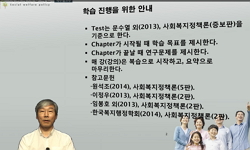이 연구는 사회적기업을 구분하는 새로운 유형론을 제안하는 것을 목적으로 한다. 현재 사회적기업은 주로 「사회적기업육성법」에서 규정하고 있는 사회서비스제공형, 일자리제공형, 지...
http://chineseinput.net/에서 pinyin(병음)방식으로 중국어를 변환할 수 있습니다.
변환된 중국어를 복사하여 사용하시면 됩니다.
- 中文 을 입력하시려면 zhongwen을 입력하시고 space를누르시면됩니다.
- 北京 을 입력하시려면 beijing을 입력하시고 space를 누르시면 됩니다.

한국 사회적기업 유형의 재구성에 관한 연구 : 국가·시장·시민사회를 중심으로 = A study on the reconstruction of social enterprise types in Korea : focusing on state-market-civil society
한글로보기https://www.riss.kr/link?id=A109010386
- 저자
- 발행기관
- 학술지명
- 권호사항
-
발행연도
2024
-
작성언어
-
-
주제어
국가 ; 시장 ; 시민사회 ; 재분배 ; 이윤추구 ; 연대 ; 고용 ; 호혜 ; 복지 ; 사회적기업 ; 유형 ; state ; market ; civil society ; redistribution ; profit-seeking ; solidarity ; employment ; reciprocity ; welfare ; social enterprise ; types
-
KDC
300
-
등재정보
KCI등재
-
자료형태
학술저널
-
수록면
47-76(30쪽)
- 제공처
-
0
상세조회 -
0
다운로드
부가정보
국문 초록 (Abstract)
이 연구는 사회적기업을 구분하는 새로운 유형론을 제안하는 것을 목적으로 한다. 현재 사회적기업은 주로 「사회적기업육성법」에서 규정하고 있는 사회서비스제공형, 일자리제공형, 지역사회공헌형, 혼합형, 기타형 등 다섯 가지로 유형으로 구분한다. 하지만 실제 현장에서 활동하고 있는 사회적기업을 이해하고자 할 때 현재의 유형 구분은 분석적 도구로서 큰 역할을 하지 못한다. 일자리제공형이 전체 다섯 가지 유형 중에서 60%가 넘는 비중을 차지하고 있으며, 나머지 네 가지의 유형은 각각 10% 내외의 비중만을 차지하고 있기 때문이다. 이는 현재의 유형 구분이 국가 영역에서 필요로 하는 목적이나 기능만을 기준으로 하고 있기 때문이다. 따라서 실제 우리 사회에서 활동하고 있는 사회적기업을 제대로 이해하기 위해서는 새로운 유형론이 필요하다. 이를 위해 사회적기업이 관계를 맺고 있는 사회의 모든 영역, 즉, 국가·시장·시민사회의 사회적 목적과 작동 원리를 파악하는 작업이 매우 중요하다. ‘공공성의 재구성’, ‘자기조정적 시장’과 ‘사회의 자기보호’의 ‘이중운동’ 등의 관점을 활용하여 각 영역의 사회적 목적인 ‘재분배’, ‘이윤추구’, ‘연대’를 도출하였다. 그리고 각 영역에서 이러한 사회적 목적이 서로 중첩되어 작동되는 원리를 ‘고용’, ‘호혜’, ‘복지’로 정리하였다. 그리고 이것들이 사회적기업의 사회적 목적과 관계 맺는 과정을 기반으로 새로운 사회적기업의 유형을 제안한다. 새로운 유형론을 통해 입체적이고 관계적인 관점에서 한국의 사회적기업을 이해하고 분석하는 데에 풍부한 이론적 도구를 제공할 수 있으리라 기대한다.
다국어 초록 (Multilingual Abstract)
This study aims to propose a new typology to categorize social enterprises. Currently, social enterprises are mainly categorized into five types as defined by the Social Enterprise Development Act: social service-providing, job-providing, community co...
This study aims to propose a new typology to categorize social enterprises. Currently, social enterprises are mainly categorized into five types as defined by the Social Enterprise Development Act: social service-providing, job-providing, community contribution, mixed, and other. Over the 16 years that the law has been in effect, this type of classification has been institutionalized not only in administrative reports but also in academic research. However, when it comes to understanding social enterprises on the ground, the current typology is not a useful analytical tool. This is because the job-providing type accounts for more than 60% of all five types, while the other four types account for less than 10% in most cases. This is because the current typology is based only on the purpose or function required by the state. Therefore, a new typology is needed to better understand the social enterprises that are actually operating in our society. To do this, it is important to identify the social purpose and workings of all the spheres of society in which social enterprises are engaged: the state, the market, and civil society. Using perspectives such as the ‘reconstruction of publicness’ and the ‘dual movement’ of ‘self-regulating markets’ and ‘self-protection of society’, we have identified the social purpose of each sphere: ‘redistribution’, ‘profit-seeking’, and ‘solidarity’. The principles by which these social purposes overlap and operate in each area are summarized as ‘employment,’ ‘reciprocity,’ and ‘welfare. We then propose a new typology of social enterprises based on how they relate to the social purpose of social enterprises. Although there is still work to be done to prove the usefulness of the new typology through research on actual case analyses, it is expected that it can be used to analyze social enterprises in Korean society from a three-dimensional and relational perspective.
동일학술지(권/호) 다른 논문
-
비정규직 노동자의 노동통제 저항 담론 : KTX 승무원 복직운동 사례 분석
- 고려대학교 한국사회연구소
- 이지연 ( Jiyeon Lee )
- 2024
- KCI등재
-
한국 언론의 권력화와 위기에 대한 재검토 : 언론·정치 병행성의 구조적 진화와 언론 자율성의 후퇴, 1987~2022
- 고려대학교 한국사회연구소
- 박진우 ( Jin-woo Park )
- 2024
- KCI등재
-
- 고려대학교 한국사회연구소
- 정지연 ( Jeoung Jiyoun )
- 2024
- KCI등재




 KISS
KISS






